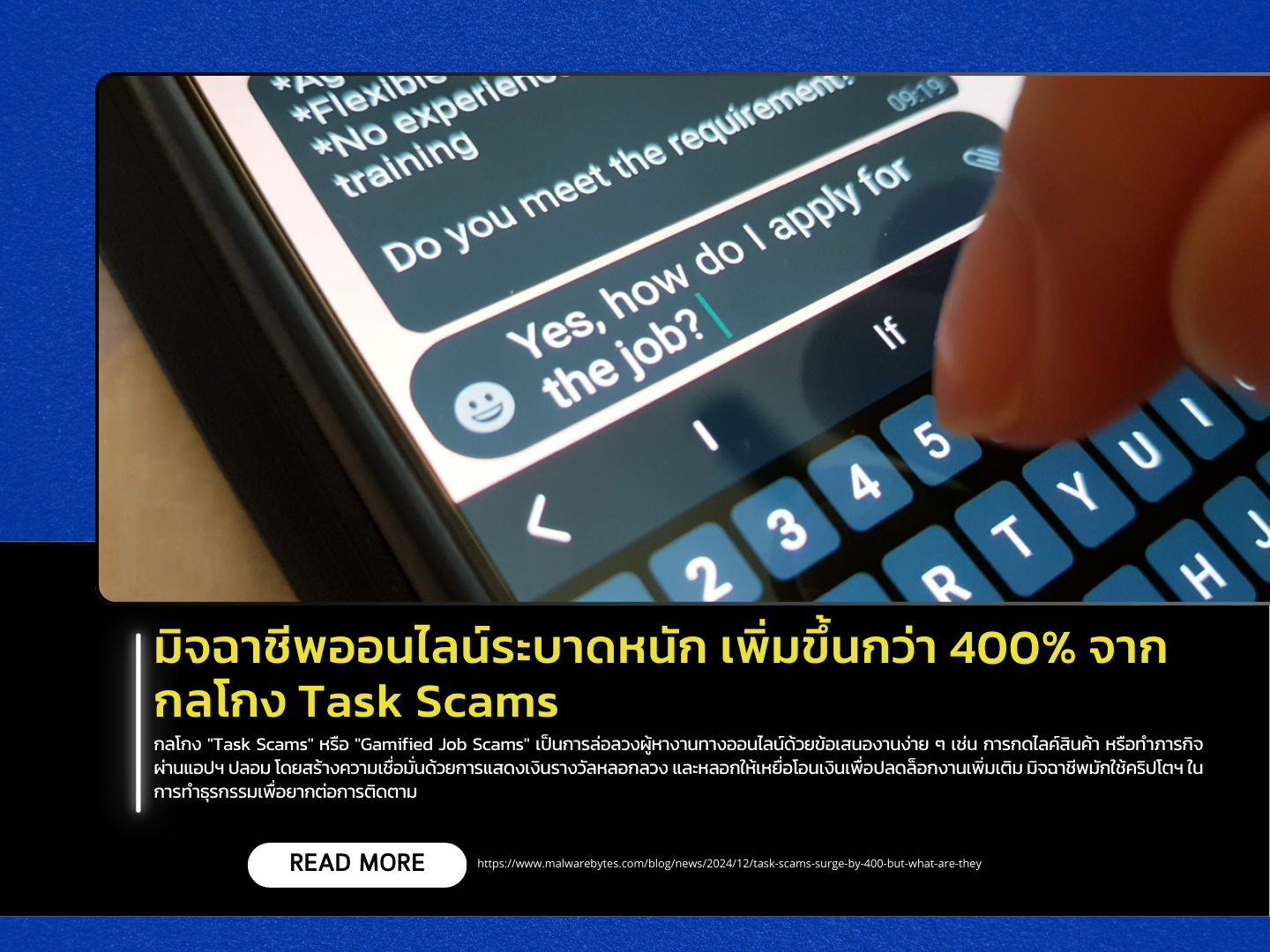448/67 Thursday, December 19, 2024

Over the past year, a new form of scam called “Task Scams” or “Gamified Job Scams” has alarmingly increased by 400%, putting job seekers at risk of wasting time and losing money.
Task Scams or Gamified Job Scams involve online fraudsters targeting individuals looking for remote jobs. They offer seemingly simple tasks such as liking videos, improving applications, boosting product visibility, liking products, or rating product images. These tasks are often grouped into sets, such as completing 40 tasks per set, with promises of leveling up to higher stages, earning points, or unlocking new levels by fulfilling certain conditions.
Victims may be offered “special tasks” with higher commissions to build trust in the platform. Some victims reported receiving small payments, which often turn out to be fake figures displayed within the system. At some point, scammers typically demand deposits or payments to unlock the next set of tasks or to withdraw accumulated earnings. Failure to comply results in the loss of all previous efforts.
Fraudsters frequently use cryptocurrency, such as USDT, for transactions, complicating the tracking process. These scams often begin with unsolicited messages sent through platforms like WhatsApp or Telegram, with scammers impersonating reputable companies such as Deloitte, Amazon, McKinsey & Company, or Airbnb. They may even create fake chat groups to share fabricated success stories of employees to gain victims’ trust.
Tips to Protect Against Task Scams
- Do not respond to unsolicited job offers received via messaging apps.
- Never pay money to secure a job.
- Verify the employer’s legitimacy through official channels.
- Avoid jobs that involve unethical activities, such as liking or rating products unlawfully.
- Remember: A reputable employer will never ask for upfront payments from employees, and if an offer seems too good to be true, it likely is.
Source https://www.malwarebytes.com/blog/news/2024/12/task-scams-surge-by-400-but-what-are-they
